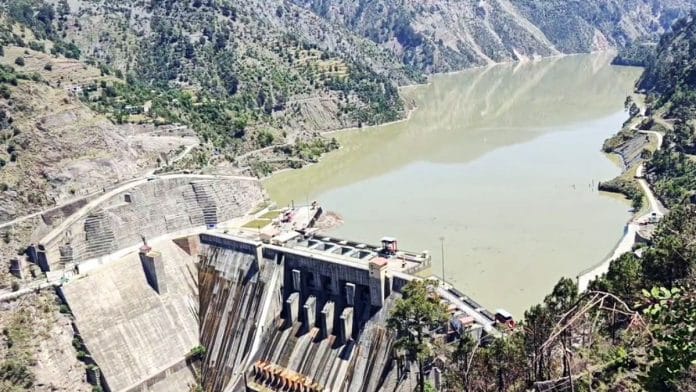New Delhi: India issued the official notification to hold the Indus Waters Treaty in abeyance late Thursday evening, as part of its diplomatic retaliation to Tuesday’s terrorist attack in Jammu and Kashmir’s Pahalgam. “The government has issued the official notification on holding the Indus Waters Treaty in abeyance,” a person familiar with the matter said.
Debashree Mukherjee, secretary at Ministry of Jal Shakti, wrote in a letter to her Pakistani counterpart Syed Ali Murtaza that India has “decided” to hold the treaty “in abeyance with immediate effect”.
“The obligation to honour a treaty in good faith is fundamental to a treaty. However, what we have seen instead is sustained cross-border terrorism by Pakistan targeting the Indian Union Territory of Jammu and Kashmir,” she wrote. “The resulting security uncertainties have directly impeded India’s full utilisation of its rights under the Treaty. Furthermore, apart from other breaches committed by it, Pakistan has refused to respond to India’s request to enter into negotiations as envisaged under the Treaty and is thus in breach of the Treaty.”
The decision to hold the treaty in abeyance was first announced by Vikram Misri, India’s foreign secretary, at a special briefing late Wednesday evening. It was part of the five decisions taken by the Cabinet Committee on Security (CCS) in its diplomatic reaction to the Pahalgam attack.
The 1960 Indus Waters Treaty has endured the wars of 1965 and 1971, and various conflicts and skirmishes between the two countries since then. However, in recent years, India has called on Pakistan to renegotiate the terms of the treaty, sending official notices in the last two years.
“This is with reference to Government of India’s notices sent to the Government of Pakistan seeking modification of the Indus Waters Treaty 1960 (the Treaty) under Article XII (3) of the Treaty. These communications cited fundamental changes in the circumstances that have taken place since the Treaty was executed that require a re-assessment of obligations under the various Articles of the Treaty read with its Annexures,” Mukherjee wrote in the letter to Murtaza.
The letter added: “These changes include significantly altered population demographics, the need to accelerate the development of clean energy and other changes in the assumptions underlying the sharing of waters under the Treaty.”
On Tuesday, four terrorists armed with AK47 rifles sprayed bullets at tourists visiting the Baisaran valley near Pahalgam in Jammu and Kashmir. The attack left at least 25 Indians and one foreign national dead, and is said to be carried out by the terrorist outfit Lashkar-e-Taiba.
The attack, one of the biggest against civilians in Jammu and Kashmir in recent years, has set off a diplomatic tit-for-tat between New Delhi and Islamabad. The CCS expelled the three Pakistani defence advisers from Islamabad’s High Commission in New Delhi, and reduced the staff at the mission to 30 from 55. India also announced that the Attari border will be closed. On Thursday, India revoked “all existing valid visas” to Pakistani nationals with effect from 27 April. Medical visas will be valid till 29 April.
Pakistan has announced the closure of the Wagah border, asking all Indians to leave the country, as well as reducing the staff at India’s mission to 30. Islamabad has announced that it “shall exercise” its right to hold all bilateral agreements including the Simla Agreement—the cornerstone of ties—in abeyance, while declaring that any attempt to stop or divert the waters of the Indus would be considered an “act of war”.
(Edited by Mannat Chugh)
Also Read: Army chief in Kashmir, ops intensified with search on for 7 LeT terrorists






